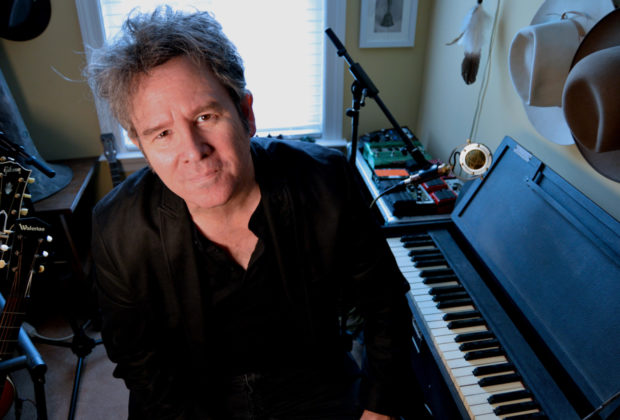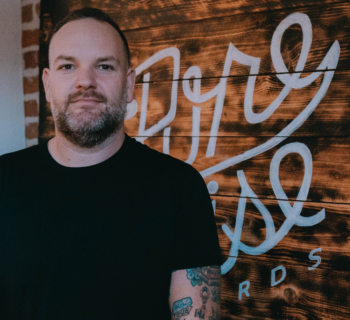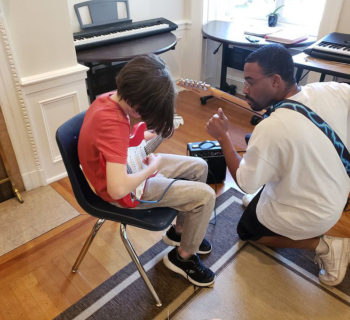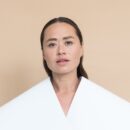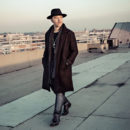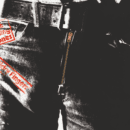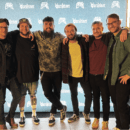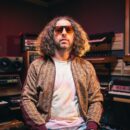Music Connection speaks with musicians, composers and songwriters who’ve invested their time and money in a home recording studio. Each provides hard-won advice on the ups, the downs, their favorite gear and the best ways to get the exact sound you desire.
Grant-Lee Phillips
Contact: grantleephillips.com
Nashville-based multi-instrumentalist Grant-Lee Phillips (pictured above) co-founded Grant Lee Buffalo, has composed for a number of films and collaborated with a range of artists. He was always interested in the recording process but his gear collection began to explode when he acquired a four-track recorder in the eighties. Early in his career he lived in L.A. where he worked in a number of rooms and recorded at a shed at his home. Ultimately he relocated to Nashville and began to assemble his home studio. He’s recorded a number of solo albums there as well as created scores for multiple films.
When and how did you begin to build your studio?
I started to mess around with four-track recorders back in the eighties. There was a big gulf between that and doing anything legitimate at home that didn’t involve a lot of money. Around 2000 I began to investigate a home studio.
What are some of the biggest challenges about running your home studio?
Learning its parameters. If you go in with the notion that you can create any kind of space, you might be fooling yourself. You have to come to terms with the limitations of your room and work as much as possible. You’ll come to know its strengths. Your ears will lead you.
When you work with clients, do you also collaborate? Do you write, produce and/or engineer?
I don’t run my studio in that fashion but I have brought in fellow songwriters. Nashville is a town that’s big on co-writing and I’ve done some of that. The studio is a great tool for a songwriter. You can throw down ideas and build on them; you can hear your ideas objectively.
What have been your favorite tech developments over the past few years?
The UA [Universal Audio] stuff is fantastic and I’m impressed with Native Instruments. I also have the Radial Reamp, which is somewhat new. You can take a part that was written on a MIDI keyboard and run it through your guitar pedal.
How do you establish a strong relationship with a mix and/or mastering engineer?
It helps if you can click with a mastering engineer. If you have the opportunity to work with one more than once, you can develop a rapport. Often I’ll ask a mix engineer about who mastered a specific album they did.
What’s the biggest challenge you’ve ever faced in your studio?
Because of the pandemic, I worked a lot by myself and that make it hard to remain objective and excited. It helps if you can listen in a different environment. I take my mixes out to the car, roll down the windows and think of something else.
How important is pre-production?
There are different kinds. When Grant Lee Buffalo made Jubilee, we did a week or ten days of playing songs eight or ten hours a day, working out the kinks. Sometimes I’ll record just voice and guitar and I’ll know that I’m content with the barebones of a song.
Is there a resource you'd recommend for someone getting started at building their home studio?
Tapeop.com. It started as a print magazine and now has a website. You can read how artists have wandered into the producer or engineer seat.
Is there an artist, producer or engineer you'd love to have visit your studio?
Jeff Tweedy. I’ve read interviews in which he talks about his guitar collection and his interest in microphones.
What are the three most important things you’ve learned about operating your own studio?
- Engineering for myself has been rewarding and whatever insecurities I had have dissipated in the process.
- It’s a much more economic approach. Artists have come to embrace self-reliance out of necessity.
- [Recording] is an art form at which you can get better; you can grow.
What’s one of your favorite professional studios in which to work?
The Sound Factory. I made a record there in 2004 called Virginia Creeper. We did it all live. There's also Lucy’s Meat Market in L.A. run by Pete Min.
Any final thoughts?
Building a home studio starts with the most humble of means. For many of us it’s one good mic. You build from there. It’s the most empowering thing you can do as a musician.
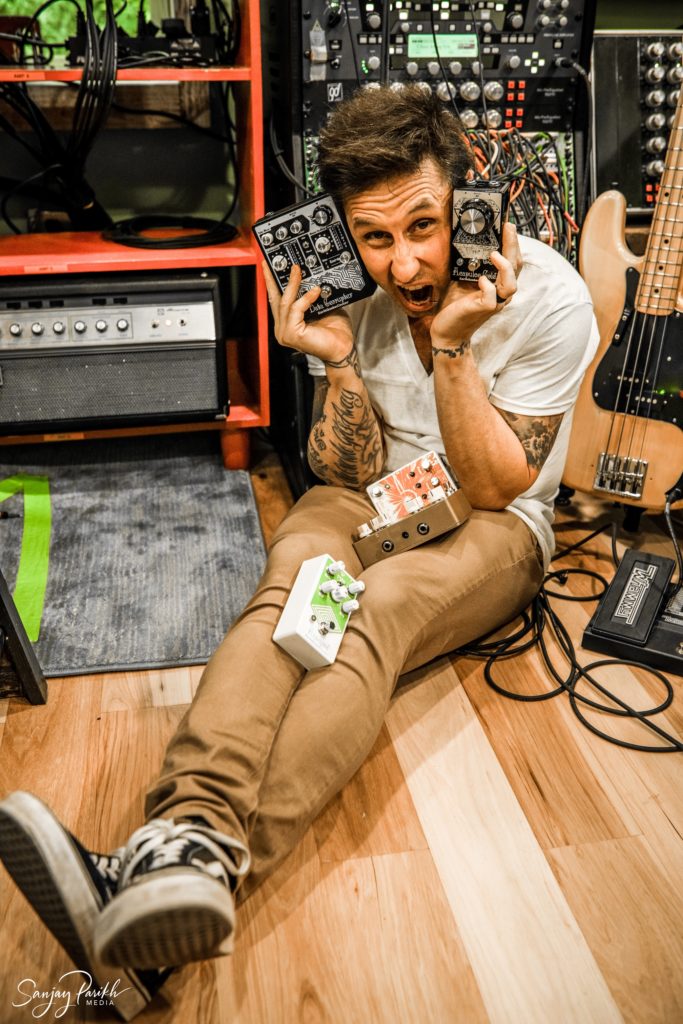
Eric Bass
Contact: instagram.com/ebassprod, https://instagram.com/biganimal__, shinedown.com
Bassist with Shinedown, Eric Bass also produces and engineers. Earlier this year he hung the final baffle in his home studio Big Animal. In 2018 he produced his band’s gold record ATTENTION ATTENTION at his previous offsite studio Ocean Industries. He helmed the follow-up Planet Zero at Big Animal, which dropped earlier this year. He plans to build an expanded control room soon and emphasizes the importance of quality mic stands. He's also writing The New Dark Eaters, a graphic novel which he’ll pair with original music. It’s targeted for publication sometime in the next sixteen months.
When and how did you begin to build your studio?
I made myself close Ocean Industries first because I knew I’d procrastinate on my home studio if I didn’t. At first, I had this disdain for my new place because I didn’t have any of the tricks that I did at my old one. I’m having to relearn a lot of things. It’s much like walking into a commercial studio at which you’ve never worked. The first thing I recorded in my new drum room I over-compressed because my other place was larger and had a sixteen-foot ceiling.
What sets your studio apart?
I don’t understand how anyone has ever been able to be creative in a corporate studio. I need a place where there are no time constraints or corporate feeling. And I’ve got a great view here. I can see the river and dolphins going by. Also, I charge a daily rate, not by the hour. Sometimes I even charge by the song.
What are some of the biggest challenges about running your home studio?
I reserve this for myself, friends and bands that I know so there’s no real running it. The biggest challenge having this at my home is having this at my home. When I drove twenty minutes to get to Ocean Industries, abandoning something wasn’t as easy. That’s a growing pain I’m still not over yet. All of the distractions of home are here. But at 4:30 in the morning I can walk the 50 feet to my studio. Asking Alexandria will record its next album here and I’ll be nervous as hell about everything working.
When you work with clients, do you also collaborate?
Depends who it is. If I know the people, I’ll pop my head in occasionally and will give an opinion if I’m asked.
What have been your favorite tech developments over the past few years?
Watching software and plugins become so good at doing what they were never designed to do. The imperfect stuff like tape and tubes colored the sound and made it darker. But we realized that [digital] made music sterile. The things that were seen as bad we now see as needed and plugins will do that.
How do you establish a strong relationship with a mix and/or mastering engineer?
I do a lot of my own mixing because there are certain things I want to hear and a certain vibe I want to have. I have a great relationship with Ted Jensen [of Sterling Sound]. He masters everything we do. He’s a fantastic person and really cares about what he’s doing. He’s a music fan.
What’s the biggest challenge you’ve ever faced in your studio?
We built a barn for my wife and, because permits are hard to get here, we pulled off of the studio box and ran the electrical out to it. Now there’s a noise that shows up in the lines occasionally. It’s the barn water pump. Every time it runs, it feeds back through the line. Dirty power is probably common in studios, but I’ve never had issues with it.
How important is pre-production?
It’s the most important. [Without it], it’s making a movie with a bad story. If you don’t have an airtight, compelling script, why tell the story? It’s the same with songs. They have to be well-crated. I’ll tell a band to play me everything including the stuff that’s not finished or that the members don’t like because more times than not, that’s some of the best stuff.
Is there a resource you'd recommend for someone getting started at building their home studio?
There’s a computer program that you feed your studio dimensions and it’ll spit out the math for a quadratic diffuser. I got better mixes out of this room when it was just a box that I’d lightly treated. But I did a ton of research. I discovered Green Glue. It disperses the low end into the wall and leaves it in the room.
Is there an artist, producer or engineer you'd love to have visit your studio?
I’m a huge Andrew Scheps fan. He did the Atmos mix on Planet Zero. I sent him the mixes rather than the stems because he wanted to capture what I’d done; he didn’t want to put his ears on it.
What are the three most important things you’ve learned about operating your own studio?
- The more you know, the more you realize you don’t know anything.
- Hang some things to get rid of reflections and you don’t have any flutter echo. I use IK Multimedia's ARC system – room-correction software. I track and mix with that on.
- Concentrate on making music and don’t beat yourself up about the space. Less gear is more sometime.
What’s one of your favorite professional studios in which to work?
Ocean Way [Now United Recording]. I worked in their Studio A. Also Studio B at Capitol.

Malibu Babie
Contact: instagram.com/malibubabie, ffm.to/mbgoodtime
Songwriter and producer Malibu Babie began her career in Nashville with a scholarship for music and dance at Vanderbilt University, mere steps from Music Row. She landed a publishing deal with Prescription Songs shortly after graduation and relocated to L.A. in 2020. She’s produced for a number of artists, notably Nicki Minaj and Megan Thee Stallion. Indeed, she co-produced Minaj’s “Super Freaky Girl,” which debuted at number one on the Billboard Hot 100 chart. With Megan Thee Stallion, she co-wrote and co-produced her 2022 single “Her.” "GOODTIME" – her own single, linked above – dropped in August.
When and how did you begin to build your studio?
I started when I moved to L.A. two years ago. I’ve got my big Yamaha speakers, my UA gear and I made sound panels myself from ROCKWOOL and boards from Home Depot. I have a bunch of MIDI keyboards, Native Instruments Komplete Kontrol and my little studio keyboard that I bring with me everywhere.
What sets your studio apart?
Inspiration-wise, I have a window that perfectly frames the Wisdom Tree. It’s a famous, magical tree on the other side of the Hollywood sign. It survived a fire so people say that it’s magical and it represents perseverance.
What are some of the biggest challenges about running your home studio?
Properly sound-treating and getting an accurate flat sound are a bit tricky due to the size and shape of the room. I use room-correcting software called Sonarworks. It measure the frequency response of your room and adjusts the output of your speakers to reflect a flat response. My mixes got noticeably better once I started to use it.
When you work with clients, do you also collaborate?
I do big hip hop sessions at Prescription’s compound. But this is my sanctuary to start and finish records.
What have been your favorite tech developments over the past few years?
I switched to Ableton 11 recently. I love the development of vocal comping. A simple plugin I just discovered is [Unfiltered Audio's] Bass-Mint. But the industry as a whole: anything you want to make now, there’s a way.
How do you establish a strong relationship with a mix and/or mastering engineer?
I’ve used recommendations from friends and I’ve done a few things myself.
What’s the biggest challenge you’ve ever faced in your studio?
The fact that my studio is in my home. Two problems arise. One is that I can’t stop working. The other is that if I’m not inspired, it’s easy to walk out of the door and get distracted. Finding the appropriate amount of focus is difficult.
How important is pre-production?
I love having pre-production for ease-of-mind. Ninety percent of the time when I walk into a studio, I’m making something from scratch. I like to have stuff tucked away and sometimes we use that. With hip hop artists, they tend to like to have the full song before they go in on the mic. Oftentimes I step in, observe the energy and see what people’s goals and vibes are and create on the spot.
Is there a resource you'd recommend for someone getting started at building their home studio?
I utilized YouTube to figure out sound treatment, how to place speakers and what gear will absorb vibrations. I’m also lucky that I know a lot of people who design studios. They’d help me measure and pick out ROCKWOOL.
Is there an artist, producer or engineer you'd love to have visit your studio?
Serban [Ghenea]. He mixed ‘Super Freaky Girl’ and every time I listen to it, my first thought is “Damn, this mix sounds so perfect.”
What are the three most important things you’ve learned about operating your own studio?
- Don’t make excuses for yourself. Hit records have been made on nothing more than MacBooks in hotel rooms. Do the best with what you have.
- Do everything you can to achieve a flat room. When I built my sound panels, my mixes got phenomenal.
- Cultivate whatever vibe makes you feel inspired. It’s more important than you think. I love natural light and colors.
What’s one of your favorite professional studios in which to work?
The Village. It’s historic and you can feel the energy. It has a special vibe.
Any final thoughts?
Inspiration can strike anywhere. Prime your environment to receive it.
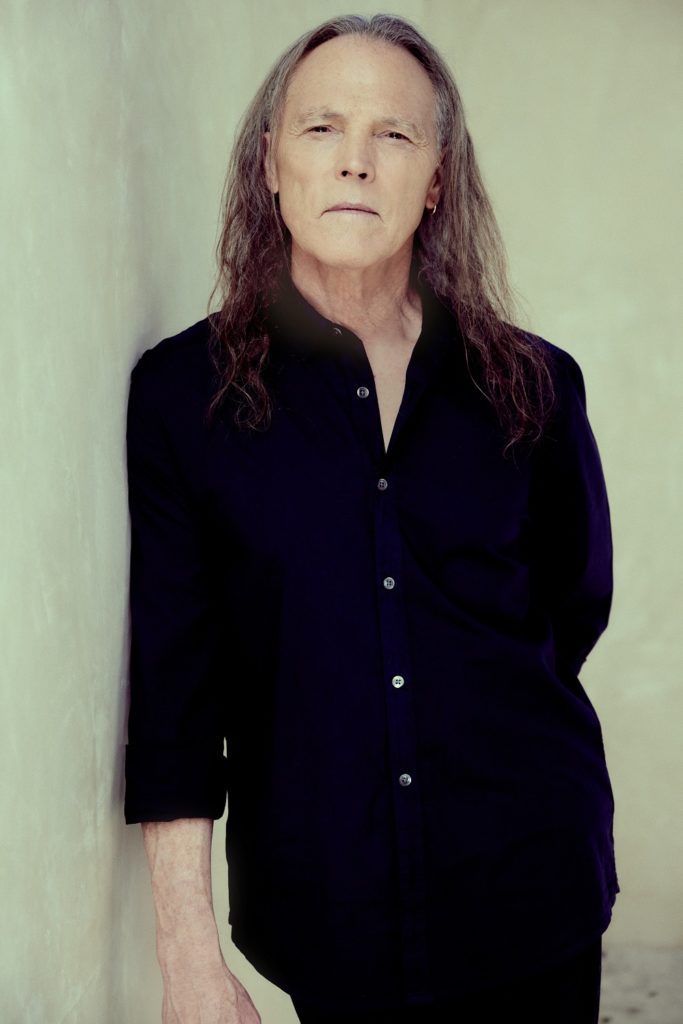
Timothy B. Schmit
timothybschmit.com, facebook.com/timothybschmit
Bassist Timothy B. Schmit has been active in music since the early sixties. That’s an impressive tenure. But the story goes deeper. He did nine albums with country rock band Poco and has been a member of legendary rock outfit the Eagles since 1977. His first outing with the band delivered the hits "The Long Run," "Heartache Tonight" and "In the City." Those iconic jams alone would merit his 1998 induction into the Rock and Roll Hall of Fame. But he remains prolific and his latest offering Day by Day dropped in May.
When and how did you begin to build your studio?
In 1994 we moved into a new place and there were already plans for a guesthouse. My wife is an artist and, originally, I was going to make it half a studio for her and the other half a demo studio for me. Soon after it was built, she wanted me to take the entire space. I had no idea it was going to grow into this monster.
What sets your studio apart?
The fact that it turned into a professional studio. The studio garage is now my drum room. Every room is wired to record.
What are some of the biggest challenges about running your home studio?
I’m not particularly technically minded. I can go so far but then it gets in the way of my creativity. I met [recording engineer] Hank Linderman through Gerry Beckley of the band America. I hired him to engineer for me. I’ve since been able to do more on my own but I mainly depend on others.
What have been your favorite tech developments over the past few years?
I work a lot now with Jeff Peters, who did live sound for the Beach Boys. I don’t have a favorite plugin or device but I tell him what I want and he’ll try out things. I used to love Lexicon stuff. The LXP-1 was a great echo device.
How do you establish a strong relationship with a mix and/or mastering engineer?
It’s usually Jeff [Peters] and I. We mix as we go. He did so much work on this last record [Day by Day] that he got a co-producer credit. Mastering for my last two records has been done by Joe Gastwirt. I’ve worked with him before and he knows what we want.
What’s the biggest challenge you’ve ever faced in your studio?
The daily glitches; the little things. When the screen doesn’t cooperate. Where I live is kind of rural and the power goes out occasionally.
How important is pre-production?
It’s kind of done in my head. For my last three albums, my method has been that I record a track on acoustic guitar just to get the tempo and a base to work from. After that, I add a lead vocal. That gives me ideas about what direction I want to go and what instrumentation will work.
Is there a resource you'd recommend for someone getting started at building their home studio?
It’s always good to find someone who knows more than you to sit and [work with some gear].
What are the three most important things you’ve learned about operating your own studio?
- You have to have people you can work with. Otherwise, it’s going to be too much of a push and pull rather than something that flows.
- Keep your studio updated.
- Surround yourself with comfortable things. I like tea and have a tea maker handy.
What’s one of your favorite professional studios in which to work?
Capitol Studios. It’s got such history. The Village is also really great. I worked there with Steely Dan as well as the Eagles. I also did some strings for my latest record at Sunset Sound.
Any final thoughts?
If you have the good fortune to build a home studio, don’t forget to be grateful for it. It’s a bonus; icing on the cake.
Lastly, I don’t like to send out files. I’ve turned down people if they couldn’t make it to my studio. I like the one-on-one; the back and forth. It just makes sense rather than wait for a file. I’ll do it for other people, though.
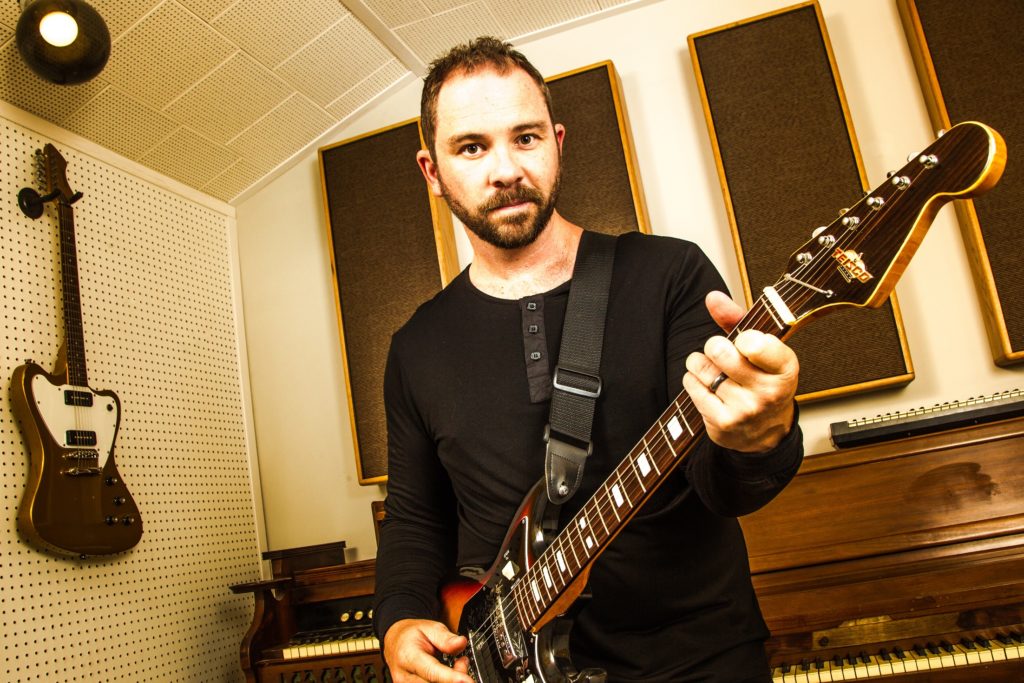
Silas Hite
silashite.com, instagram.com/silas_hite
Emmy-winning composer and multi-instrumentalist – jazz drums in particular – Silas Hite studied music at The University of Arizona, worked in a local studio briefly and then set out for L.A. There he landed work at Mutato Muzika, which, fortuitously, was and is owned by his uncle, Mark Mothersbaugh, co-founder of Devo. In addition to his own original music, much of his work is composition for TV, film, commercials and video games. Indeed, he’s scored several of The Sims games, Tetris mobile and EA’s The Simpsons. His latest score is for the forthcoming HBO Max show Big Brunch.
When and how did you begin to build your studio?
I started by collecting quality gear and instruments when I worked at Mutato Muzika. I built my studio in 2016. I hired a company to soundproof the tracking room because I’ve got a Neumann U47 running through Neve mic preamps and that picks up everything. My friend Jason Tarulli who does front-of-house for the Black Keys helped me finish it.
What sets your studio apart?
My instrument collection. I have a ton of interesting vintage and new instruments. An 1880’s pump organ, for example.
What are some of the biggest challenges about running your home studio?
Keeping my instruments, mics and computer running properly. Especially the computer.
What have been your favorite tech developments over the past few years?
I love the iZotope RX plugins for cleaning up audio. The PSP plugins are also fantastic. Their VintageWarmer is great. I use that for snare or lead guitar. I also like their SpringBox.
How do you establish a strong relationship with a mix and/or mastering engineer?
I’ve used the same mastering engineer for the past 15 or 20 years. His name’s Hans DeKline. I worked with him once, we hit it off and became friends. He’s a good communicator, which is key. When I find someone who does a good job, I like to stick with them.
What’s the biggest challenge you’ve ever faced in your studio?
The pandemic. Work stopped, pretty much. No one was doing anything. I did get some work but I also made records I’d wanted to and have been able to license those songs.
How important is pre-production?
I usually don’t have that luxury. Most of the time my deadlines are fast and furious. I’ll write a cue in a few hours, make tweaks the next morning and then send it. There may be revisions requested but I don’t usually have time for pre-production.
Is there a resource you'd recommend for someone getting started at building their home studio?
Tapeop. It helped me to learn on the fly when I was young. It’s always had the viewpoint of people who don’t have huge studio budgets. I still read it. It’s a fantastic resource.
Is there an artist, producer or engineer you'd love to have visit your studio?
I’d love to pick Tchad Blake’s brain. He’s one of my production and mixing heroes.
What are the three most important things you’ve learned about operating your own studio?
- Don’t spend money on things that won’t make you money.
- Reinvest a chunk of every paycheck into your studio.
- Keep it clean and tidy with everything working.
What’s one of your favorite professional studios in which to work?
Mutato Muzika. It was like the Pee-wee’s Playhouse of recording studios: a cross between a music or toy store, an instrument museum and an art factory.
Any final thoughts?
Friendly people get more work. Be nice.

